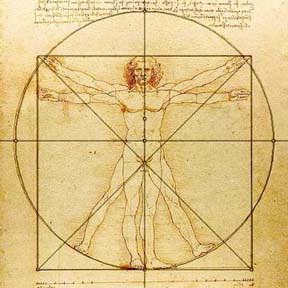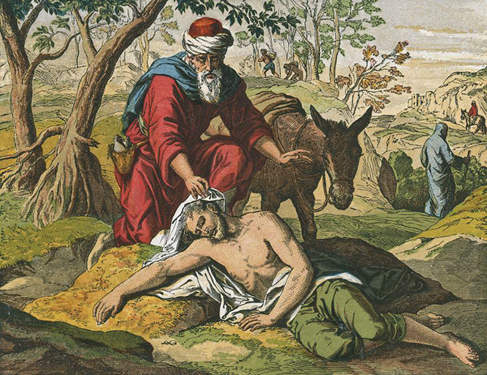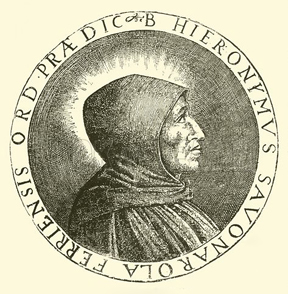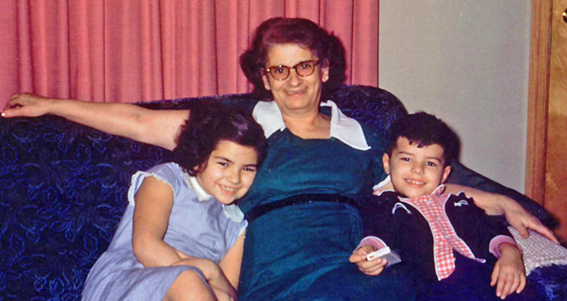March 2020
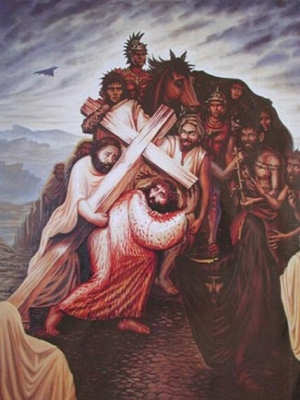 Live for Christ |
Lent
is a time to focus on self-denial (Luke 9:23) – by stressing
fasting and repenting (Matthew 6:16, 4:17). But to what end? So
that we no longer live for ourselves but for Christ (2
Corinthians 5:15). Now when it came to oath-taking, Jesus told
us to say just yes or no – without swearing by God’s name
(Matthew 5:37). Keep it simple. Luther thought this simplicity
extended to all Bible verses, thereby stopping turning them into
a “purgatory” (Luther’s Works 21:104) by arguing over
what they said, wondering what they could’ve meant, and twisting
them to dodge them (2 Corinthians 4:2). Instead, we are just to
hear them and do what they say giving-up on serving two masters
(Luke 11:28, 16:13). So don’t say – a little for Jesus and a lot
for me. Just keep it simple (LW 16:93): No to me; but yes
to Jesus – by celebrating his advocacy and walking in his steps
(1 John 2:1, 1 Peter 2:21). That’s what Lent’s about.
—Pastor
Marshall |
|
Hello again
First Lutheran Church members,
As we anticipated, 2020 is continuing the positive financial
trend we began in 2019.
Our envelope giving for January was right on budget.
Thanks be to God.
The Executive Committee has begun the process of reviewing our
church Constitution and Bylaws.
We had intended on having this completed by the end of
this year, but it looks promising that we can present the
changes to the congregation at our mid-year meeting.
I will keep you updated.
The Executive Committee will be preparing Pastor Marshall’s
Pastoral Review this year.
The eight areas we evaluate are, 1) Presiding at Worship,
2) Preaching, 3) Teaching, 4) Writing, 5) Governing, 6) Visiting
& Consoling, 7) Serving in Community, and 8) Personal Life.
As President, if you have had experience with Pastor
Marshall or an opportunity to observe him in relation to any of
these categories, I am interested and would welcome in your
feedback. At your
request, I would share your feedback with Pastor Marshall
anonymously. Feel
free to email me seafreak59@comcast.net or call me 206-935-0129,
or catch me at church (usually the 8 a.m. service).
Frequently, there is a specific part of Pastor Marshall’s
sermons that really resonates with me.
His February 2, 2020 sermon is one of those times.
The sermon was
Suffer With Jesus.
As always, the sermon ended with
Lead to Good Works.
We are taught that, “Faith apart from works is dead.”
(James 2.26). This
time, as is frequently the case, Pastor Marshall turned the
teachings from Martin Luther (Luther’s Works 56:321) for
inspiration. Here
is what was said:
We have heard these things preached before in different
contexts. For me,
having these together under doing our good works, and tying the
word with the actions stuck with me.
I have continued to think about this daily since February
2. The more I
ponder it the more I feel compelled to apply these good works to
my daily life. Can
you relate – when part of a sermon just simply resonates with
you and you carry it with you for days?
This was one of many times it did for me.
Blessings to you all. |
|
STEWARDSHIP
Simply Given
A recent
sermon by Pastor Marshall included a calling to simplicity and
encouragement to not make things unnecessarily complicated. So,
as we take another look at stewardship, let’s start with the
simple: Tithing is good and we should strive to do it. Sharing
what we have with others is good and we should do that, too. The
giving of our time for the church and those in need is also good
and we should do that as well. Pretty simple, if you think about
it. But does it stop there? How much time with others do we
spend? How can we best use our possessions to help others, and
how often? How do we know? Again, simply speaking, seeking God’s
will for ways to be good stewards of what God has given us is
always a good starting point. Praying for guidance and
inspiration is always necessary. Kierkegaard once observed: “A
man prayed, and at first he thought that prayer was talking. But
he became more and more quiet until in the end he realized that
prayer is listening.” So, a beginning point in looking for ways
to best be good stewards is to listen in prayer and be open to
God’s guidance. So, we are called to provide for the church
through the generous giving of our selves, our time, our wealth
and our possessions. And, of course, when compared to what
Christ did for us on the cross, we can never be satisfied with
what we have done. Who could? We should be forever grateful,
forever thankful, and forever indebted to Christ. So, let’s just
take a minute to remind ourselves of what Christ did for us on
the cross. 1 Peter 2:24 says: “He himself bore our sins in his
body on the cross, that we might die to sin and live to
righteousness. By his
wounds you have been healed.” Jesus became our sin. He became,
at the moment of his death, the worst of what we are –
rebellious, corrupt, defiled and ugly. He became, at that
moment, a thief, glutton, idol worshipper, murderer, etc. Martin
Luther called this the “great exchange.” And this sacrifice was
for us! His death on the cross was solely for us, our benefit.
Amazing love! He took the wrath of God, which was supposed to
land squarely on us, and took it on himself so we could become
the righteousness of God in him. And he did this willingly. So
should our giving be. Will our giving be a sacrifice? Maybe, if
that’s how God is speaking to you. Will the stewardship of my
time and my possessions inconvenience me? It might. But whether
sacrifice or inconvenience, neither or both, the willingness to
be used in this way is the important part.
-Benjamin Dobbeck, Church
Council
|
|
March Book
With the Mind:
Readings in Contemporary Theology
12-2 pm in the Room C, Sunday, March 22nd
The book for March is
Dying and the Virtues (2018), by Matthew Levering, professor
of theology at the Roman Catholic Mundelein Seminary in
Illinois. Levering begins his books with the Christian claim
that dying is “both a devastating threat to be feared and, in
Christ, a passage to the fullness of life whose mode is
self-surrendering love” (p. 4). The rest of the book is a
development of that mode in light of the virtues of love, hope,
faith, penitence, gratitude, solidarity, humility, surrender,
and courage (pp. 7–9). As a result, without “glorifying dying
“as though it were intrinsically good,” Levering concludes that
“the painful process of dying is the way in which God shapes
the… new Adam out of the [old]; bit by bit [breaking] our
willfulness and self-sufficiency so as to recast us for the
freedom of his love” (168).
A copy of this edifying book is in the library. If you would
like to purchase one for yourself, contact Pastor Marshall. Feel
free to attend our meeting when we discuss how our faith helps
us prepare for death.
|
 |
|
Luther on Samson
By Pastor Marshall
Samson is notorious for loving wanton girls – those beautiful
young pagan women (Judges 14:1–3). Modern scholars attribute his
deviance to the “fascination of taboo behavior” (E. J. Hamline,
Judges: At Risk in the Promised Land,
1990, p. 134); “spiritual and social anarchy” (R. D. Branson,
Judges,
2009, p. 134); and being dominated by the “senses, not logic”
(T. C. Butler,
Judges,
2009, p. 332). But not Luther – he was impressed that Samson’s
distressed parents signed off on their son’s wayward desire,
forswearing “their own arbitrary will,” he says, in favor of
Samson’s “advancement and need.” Even though Luther believed his
parents had the “authority to tear apart” the lusty couple,
digging in like that would have been “inhuman,” so he sides with
Samson – and Ephesians 6:4 and
Colossians 3:21 (Luther’s
Works
52:219). |
|
The Body
“I am fearfully and
wonderfully made.”
(Psalm 139:14)
“You don’t know how the
body is formed in the mother’s womb.”
(Ecclesiastes 11:5)
The Brain
“The most extraordinary thing in the universe is inside your
head…. If you were to lift your
brain out of your skull, you would almost certainly be surprised
at how soft it is [like] soft butter…. The great paradox of the
brain is that everything you know about the world is provided to
you by an organ that has itself never seen the world [being
like] a dungeoned prisoner [in your skull]…. Your brain churns
through more information in thirty seconds than the Hubble Space
Telescope has processed in thirty years…. Your brain requires
only about four hundred calories of energy a day – about the
same as you get in a blueberry muffin…. The brain is divided
into two hemispheres, each of which is principally concerned
with one side of the body, but for reasons unknown the wiring is
crossed…. Thinking is our most vital and miraculous talent, yet
in a profound physiological sense we don’t really know what
thinking is…. [But] some of the things we do know are at least
as amazing…. Consider how we see…. [Take] a bar of soap... [Its]
lather is always white no matter what color the soap is. That
isn’t because the soap somehow changes color when it is
moistened and rubbed. Molecularly, it’s exactly as it was
before. It’s just that the foam reflects light in a different
way. You get the same effect with crashing waves on a beach –
greeny-blue water, white foam…. That is because color isn’t a
fixed reality but perception…. For all its marvels, the brain is
a curiously undemonstrative organ. The heart pumps, the lungs
inflate and deflate, the intestines quietly ripple and gurgle,
but the brain just sits pudding-like.”
[Bill Bryson, The Body: A
Guide to Occupants (2019) pp. 48–49, 51, 54, 56, 64.] |
Hebrews 3:13
Monthly Home Bible Study, March 2020, Number 325
The Reverend Ronald F. Marshall
Along with our other regular study of Scripture, let us join as
a congregation in this home study. We will
study alone then talk
informally about the assigned verses together as we have
opportunity. In this way we can “gather
together around the
Word” even though physically we will not be getting together
(Acts 13.44). (This study uses the RSV translation.)
We need to support each other in this difficult project. In 1851
Kierkegaard wrote that the Bible is “an extremely dangerous
book.... [because] it is an imperious book... – it takes the
whole man and may suddenly and radically change... life on a
prodigious scale” (For
Self-Examination). And in 1967 Thomas Merton wrote that “we
all instinctively know that it is dangerous to become involved
in the Bible” (Opening
the Bible). Indeed this word “kills” us (Hosea 6.5) because
we are “a rebellious people” (Isaiah 30.9)! As Lutherans,
however, we are still to “abide in the womb of the Word” (Luther's
Works 17.93) by constantly “ruminating on the Word” (LW
30.219) so that we may “become like the Word” (LW
29.155) by thinking “in the way Scripture does” (LW
25.261). Before you study then, pray: “Blessed Lord, who caused
all Holy Scriptures to be written for our learning: Grant us so
to hear them, read, mark, learn and inwardly digest them, that
we may embrace and ever hold fast the blessed hope of
everlasting life, which you have given us in Our Savior Jesus
Christ. Amen” (quoted in R. F. Marshall,
Making A New World: How
Lutherans Read the Bible, 2003, p. 12). And don’t give up,
for as Luther said, we “have in Scripture enough to study for
all eternity” (LW
75:422)!
Week I.
Read Hebrews 3.13 noting
the phrase hardened by
the deceitfulness of sin. What’s the risk here? On this read
Hebrews 3:12 noting the line
fall away from the living
God. How is this possible if John 10.28 says that nothing
shall snatch us away from Christ? On this read Romans 8.17
noting the line provided
we suffer. And if we don’t? On this read 1 Timothy 1.19
about Hymenaeus and Alexander who
made shipwreck of their
faith. How were they able to do that? Luther thinks this is
“an excellent metaphor from ships. In a single word,” he writes,
Saint Paul “points out what the world and the sea are. We are
carried into the midst of perilous storms. With trembling we
must remain in the Word…. So it is not that we are safe. We are
serving as soldiers. We have not been set up in a place where it
is safe to leave the Word of God and hide it under the bench” (Luther’s
Works 28:253). Is he right? On this read 1 John 5.19 noting
the words whole,
power and
evil. Sounds pretty
bad, doesn’t it? Read also 2 Timothy 2.3 noting the word
soldier. Is that
right? And read Matthew 10.16 noting the word
wolves. How can that
be?
Week II.
Read again Hebrews 3.13
noting the word hardened.
Why such a severe word? On this read John 8.34 noting the word
slave. Is that a
hardening word? On this read Romans 6.16 noting the phrases
yield yourselves and
you are. Is that
reversible? On this read Jeremiah 13.23 noting the question
can the leopard change
his spots? What do you make of this? On this read Luke 18.27
noting the words
impossible and
possible. What swings the pendulum? On this read Luke 11.13
noting the words more
and ask. Can it be
that simple? Why wouldn’t everybody be asking and receiving? On
this read John 3.19 noting the words
love and
darkness. Read also
Isaiah 30.10 noting the word
illusions. Why are we
so resistant? On this read Acts 7.51 noting the word
stiff-necked. Read
also John 8.44 noting the words devil,
desires and
liar. Lest you think
this last verse doesn’t apply, read 1 Corinthians 10.6.
Week III.
Reread Hebrews 3.13
noting the word
deceitfulness. Why is sin deceitful? On this read 1 John 3.4
noting the word
lawlessness. How is that deceitful? On this read Romans 7.9
noting the words alive,
apart,
revived and
died. What kind of
life was that? On this read Luke 12.19 noting the words
ease and
merry. What’s wrong
with this light-heartedness? On this read John 16.33 noting the
word tribulation.
Read also Romans 7.24 noting the word
wretched. And how do
I die when sin is accentuated? On this read 1 Corinthians
14.24–25 noting the line
the secrets of his heart are disclosed; and… falling on his face.
How is this falling down a dying? On this read Luke 15.24 noting
the equation of the words
lost and dead.
And how does the law revive sin? On this read Ephesians 5.11
noting the word expose.
Have you tried that? Week IV. Read Hebrews 3.13 one last time noting the line exhort… every day. Why is that needed? On this read 2 Thessalonians 3.6–12 noting the connection between idleness and exhortation. What makes us idle – so much so that we need pushing if we are going to get going? On this read 1 Corinthians 9.24 noting the words run and compete. These stand against laziness. Read also Philippians 3.13–14 noting the words straining and press on. These words also go against the laziness of the flesh – as in the laziness of drunkenness in Galatians 5.21. What’s behind our laziness? On this read 2 Timothy 3.3–4 noting the words pleasure and profligates or lovers of extreme luxury. What makes us like that? On this read Romans 13.14 noting the gratifying of the desires of the flesh. What draws us there? On this read 2 Corinthians 4.18 noting the word transient, and Colossians 3.2 noting the word earth. Is that why we need to be born anew in John 3.3? |
|
“The Good Samaritan” and
“Mitty”
by Bob Baker
The parable of the Good Samaritan is so familiar that we may
even think we have it nearly memorized. Jesus has been asked by
a lawyer what he must do to inherit eternal life. The lawyer
sums up the law saying that one should love the Lord our God
with all one’s heart, soul, strength and mind; and one’s
neighbor as oneself. Jesus says, “Do this, and you shall live.”
The lawyer says, “And who is my neighbor?” Jesus responds with
this parable which is only recounted in Luke’s Gospel. With just
about 170 words, Jesus sketches a verbal picture of a man
[presumably Jewish] traveling to Jericho whom robbers strip,
beat and leave half dead. A [Jewish] priest and then a [Jewish]
Levite traveling that way each in turn see him and pass by on
the other side. Then a Samaritan* came by, who, upon seeing the
needs of the wounded victim, had compassion on him, treated his
wounds and got him to an inn where he further cared for him,
and, before resuming his own journey, paid the inn keeper to
continue caring for the victim. When asked which of the three
proved neighbor to the man in need, the lawyer said, “The one
who showed mercy.” Jesus said, “Go and do likewise.”
On the one hand, the parable is a rather full sketch of the
action, drama and point made. On the other hand, a lot seems
left unsaid. Our imaginations tend to paint in more of the
details; at least mine does. I always pictured the Samaritan as
paying for the expenses of the man’s care out of the largess of
his own surplus funds, and doing so without inconveniencing
himself etc.
However, last October, the book discussed at “With the Mind” was
Breakfast at Sally’s,
by Richard LeMieux. “Sally’s” we learn is short for The
Salvation Army, and in this book it is in downtown Bremerton. In
the first three pages of chapter 31 (page numbers depend on the
edition of the book you are reading) we are introduced to Mitty.
She is a regular at breakfast at Sally’s and has been for some
time, yet Mitty is not homeless. (I have since learned that
meals at The Salvation Army are called “community meals” and
anyone is welcome to come and eat.)
LeMieux tells us, “Mitty practiced random acts of kindness,
often providing survival cash and expecting nothing in return. .
. , [A] godmother to many, not only doling out dollars from time
to time, but also taking food to poor people when they were
sick, arranging rides to the doctor for those with no car or bus
pass, and encouraging those who were too ashamed to ask for
help.” LeMieux tells us that a movie should be made about Mitty,
and yet he does not give us anything of a story board of what it
would look like. No clue is given about what motivates Mitty,
but perhaps the most important thing said about her is in one
short sentence: “[S]he wasn’t a rich lady by any stretch of the
imagination, but rather chose to deprive herself to help
others.”
Mitty . . . chose . . . to deprive herself . . . to help others.
That haunts me.
Now I read the parable of the Good Samaritan differently. I no
longer think of the Samaritan as one who easily bank rolls the
care of the victim, and who does so without inconveniencing
himself. A road with robbers is not a place to go with more than
minimal provisions. In caring for the victim and for his
additional care, the Samaritan may well have chosen to deprive
himself of desired provision for the rest of his journey. For
example, instead of himself staying in an inn later on, he may
have had to sleep in a stable or under a bridge, etc.
Like the good Samaritan, Mitty had the capacity for compassion
for those in need who were abused by some and neglected by
others who passed by on the other side. Jesus instructed the
lawyer to “Go and do likewise.” Mitty’s mantra was, “We have to
help each other out when we can.” And she deprived herself so
she could.
Of what do I deprive myself to help others?
*It seems there was animosity between Jews and Samaritans as
similar to that between ranchers and farmers in the old west, or
between Republicans and Democrats in congress, or maybe between
Boeing and Airbus, or between Protestants and Roman Catholics.
But this Samaritan “crossed the aisle.” |
|
Our Italian Reformation Heritage
By Pastor Marshall
Growing up I thought I had a Norwegian and German background –
(my Mom’s side Norwegian – Liens and Andersons, and my Dad’s
side German – Marzahl being the original family name). But a
couple of years ago I discovered that Grandma Marshall
(1893–1965) was not born Nellie Morris as we were told, but
Nellena Marasco (her parents being Italian immigrants from
Decollatura – Michael Marasco and Marie Gillete). This prompted
further reflection on my Lutheran Italian heritage and the
influential Girolamo Savonarola (1452–1498) – whom Martin Luther
called “an example of Evangelical doctrine and Christian piety”
(Luther’s Works
59:81). Savonarola writes: “Since it is a Christian’s duty to
defend God’s honor, the faith of our Lord Jesus Christ, and
uprightness of life, I,… watching Christ’s sheep stray… because
of the poor example of many pastors, set about preaching the
truth of the gospel, strengthening the faith, teaching the
Christian life, prophesying future evils… so that I might exhort
all mankind to penance,… and for all these things suffering
persecution from wicked men” (Girolama
Savonarola: Apologetic Writings, Harvard, 2015, p. 105).
Because the Church couldn’t stand his biting, Biblical honesty,
he was apprehended, tortured “and executed on 23 May 1498” (The
Oxford Encyclopedia of the Reformation, 4 vols., 1996,
3:487). May this Italian – Lutheran – saint’s words and witness
abide richly in us all.
Pastor Marshall with his sister, Doreen, at their home in West
Virginia,
when Grandma Marshall was visiting in 1953.
|
|
WEB PAGE ADDRESS:
www.flcws.org
Log on to see what is new! Also, if you prefer to log on
using your cell phone try www.flcws.space – our thanks to Kevin
Klett.
FOOD BANK DONATION
suggestions for March are canned meats, chilies and stews.
2020 FLOWER CHART
could use a few more families to sign up for Easter Flowers.
And, if you considered signing up for Altar Flowers this
year and but have not had a chance, this would be a good time to
see what dates are left.
SACRISTY NEEDS:
Please save large 46-49.5 oz. juice or broth cans for the
Altar flower distribution each week.
Also please return if taken home.
MARK YOUR CALENDARS
– West
Seattle
Food Bank
Instruments of Change benefit & social hour: live music,
guest speaker, dinner, and a dessert auction at Seattle Design
Center in Gerogetown. Saturday,
May 9, 2020, 6-9 pm.
WEST SEATTLE RECYCLING
will buy your recyclables and then send the church a 10% bonus
check a couple of times a year. Pastor Marshall is willing to
take your donations (newspaper and aluminum cans) if left neatly
at the back of the parsonage carport. #6 Styro-foam can also be
recycled. Another suggestion is
dead batteries.
They are not allowed in the garbage.
Pastor Marshall is willing to properly dispose of them if
they are left in marked
bags on the office window counter.
Thanks to those who participate in these programs.
NOTE:
Postage for the home delivery of The Messenger is
donated by JohnsonCN ‒ Computer
Support for Business and Non-Profits ‒
www.johnsoncn.com. .jpg) |
|
Remember in prayer before God those whom He has made your
brothers and sisters through baptism.
Eve Young, Pete Morrison, The Tuomi Family, Sam & Nancy Lawson,
Bob & Barbara Schorn, Connor Bisticas, Eileen & Dave Nestoss,
Kyra Stromberg, Tabitha Anderson, Diana Walker, The Rev. Chelsea
Globe, The Rev. Albin Fogelquist, The Rev. Howard Fosser, The
Rev. Kristie Daniels, The Rev. Kari Reiten, The Rev. Dave
Monson, The Rev. Paul Smith, The Rev. Dan Peterson, The Rev.
Eldon Olson, Sheila Feichtner, Richard Uhler, Yuriko Nishimura,
Leslie Hicks, Eric Baxter, Nell & Paul Sponheim, Mary Lou & Paul
Jensen, Hillary & Jim Thoren, Trevor Schmitt, Cheryl Atwood,
Lesa Christensen, Maggie & Glenn Willis, Audrey Palomino, Garret
Ross, Shirley Graham, Evelyn, Emily & Gordon Wilhelm, Satsuki
Tanizawa, Karen Berg, Bjorg Hestevold, Wayne Korsmo, Garrett
Metzler. Also, pray
for unbelievers, the addicted, the sexually abused and harassed.
And, pray for those suffering from the flu epidemic.
Pray for the shut-ins that the light of Christ may give them
joy: Bob & Mona
Ayer, Bob & Barbara Schorn, Joan Olson, Doris Prescott, C. J.
Christian, Dorothy Ryder, Lillian Schneider, Crystal Tudor, Nora
Vanhala, Martin Nygaard, Gregg & Jeannine Lingle, Anelma Meeks.
Pray for our bishops Elizabeth Eaton and Shelley Bryan Wee, our
pastor Ronald Marshall, our choirmaster Dean Hard and our cantor
Andrew King, that they may be strengthened in faith, love and
the holy office to which they have been called.
Pray that God would give us hearts which find joy in service and
in celebration of Stewardship.
Pray that God would work within you to become a good
steward of your time, your talents and finances.
Pray to strengthen the Stewardship of our congregation in
these same ways.
Pray for the hungry, ignored, abused, and homeless this Lent.
Pray for the mercy of God for these people, and for all
in Christ's church to see and help those who are in distress.
Pray for our sister congregation
El Camino de Emmaus,
in the Skagit Valley, that God may bless and strengthen their
ministry. Also,
pray for our parish and it's ministry.
Pray that God will bless you through the lives of the saints:
Thomas Aquinas, teacher, 1274; Joseph, guardian of our
Lord. |
|
A Treasury of Prayers Dear Lord God, help me handle money properly.
I thank you for all of the life and joy it has purchased – bread
for the family table, the saving visit of the doctor, houses for
the homeless, the book that taught the young, the support for
churches and missionaries. And I ask forgiveness for all the
harm it has done – buying booze for drunkards, guns for
criminals, time from a prostitute, and contaminates that foul
nature. In the name of Jesus I pray. Amen.
[For All the
Saints III:513, altered]
|


